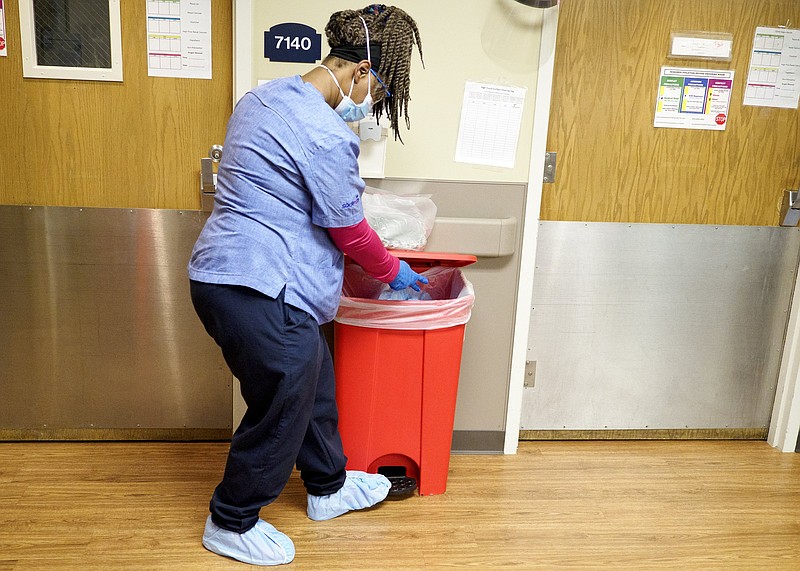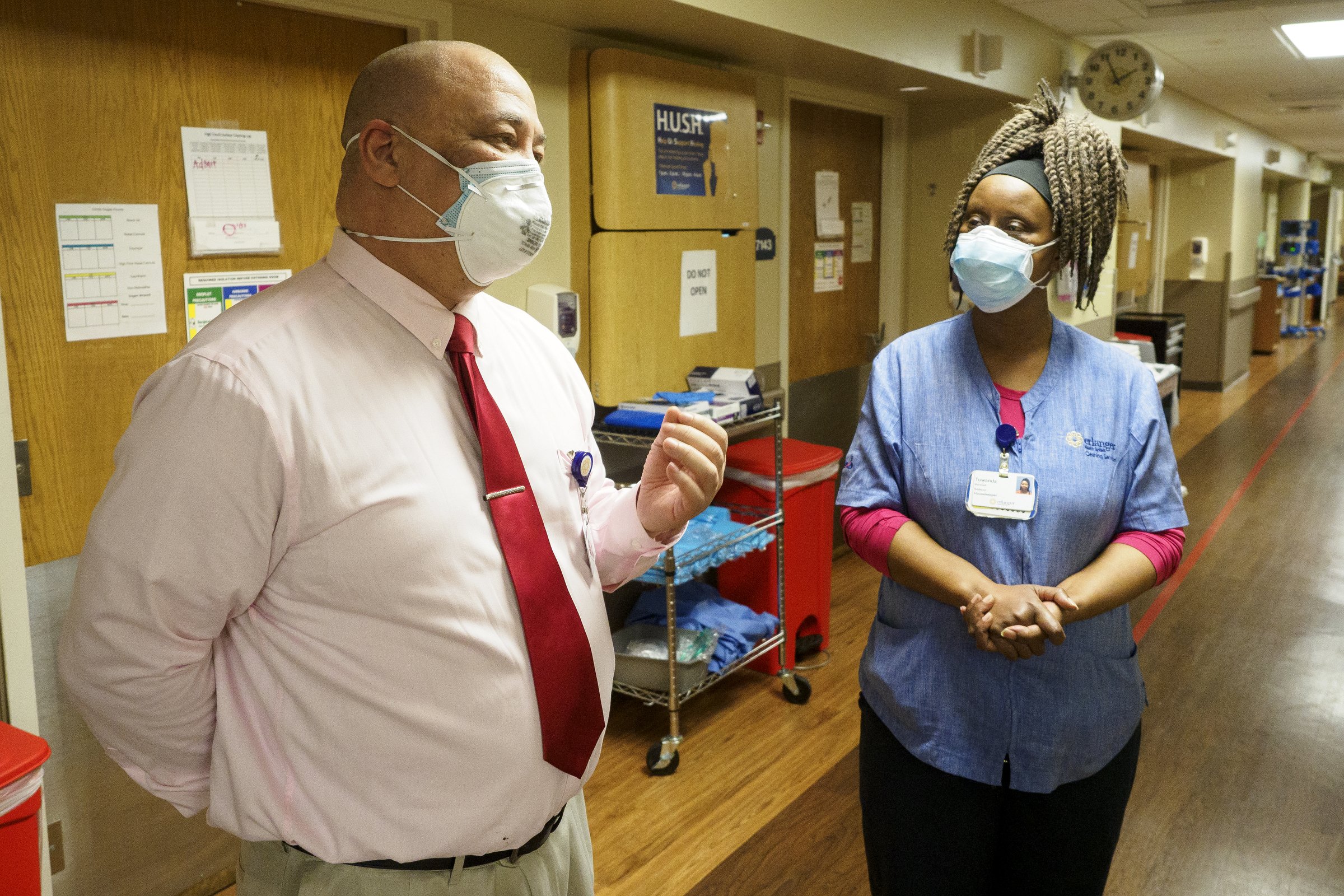Meticulous infection control wasn't new to Towanda Marshall when COVID-19 arrived.
As a housekeeper of three years at Erlanger Health System, Marshall is professionally trained to clean patient rooms from top to bottom.
"You have to do the ceiling, the walls, the couch, the bed. You have to pull the bed out and get up under the bed. You have to clean the bathroom - everything in that room has to be sanitized," she said.
Though the pandemic didn't change the process of cleaning rooms itself, it certainly elevated the level of fear and risk associated with the job.
Steve Wheeler, Erlanger's director of environmental services, said many housekeepers left the health system out of concern once the pandemic struck.
"One of the challenges that we have now is getting new people in, because of the challenge of COVID and the fear of it," Wheeler said.
Hospital housekeepers are among the many workers that have put their lives on the line over the past year, yet they have not received the same level of attention and praise as others in the health care industry.
Just like nurses, housekeepers must enter each patient room several times during the day. For Marshall, that's an average of 20 to 25 rooms each shift.
Though not all housekeepers are assigned to coronavirus patient rooms, Marshall said she didn't mind taking on that duty so that some of her other coworkers could stick to cleaning rooms with less-infectious potential.
"Of course I was a little scared," Marshall said. "I was afraid, but once I got in here and I knew I was protected, I felt very comfortable and didn't have a problem."
Each time, she must suit up in full personal protective equipment and carefully strip it off as she exits the room so as not to contaminate her clothes or body with infectious particles. The same process is used for other contagious pathogens that require special isolation protocols, such as MRSA and C. difficile - two types of bacterial infections that are known for being resistant to antibiotic medications, making them difficult to treat.
Once entering the room, Marshall introduces herself and begins the multistep process of disinfecting. She starts cleaning from the door, and talks to the patient as she goes around the room cleaning and then mops her way out.
It takes about 15-20 minutes to clean a room with patients inside, but once they're discharged, a full cleaning must be done to prepare for the next patient. That process takes closer to 45 minutes.
After a COVID-19 patient is discharged, Erlanger uses a robot that emits ultraviolet light throughout the room to add an extra layer of disinfection.
Not only do housekeepers help ensure the safety of patients, staff and visitors, Wheeler said, they've played an integral role in helping to interact with and comfort patients.
"During the height of [the pandemic], when we didn't have visitors in the hospital at all, these are the people that we relied on making that engagement with the patients," Wheeler said. "Sometimes that's the only touch that they had to the outside."
To this day, the vast majority of COVID-19 patients are still unable to have visitors and must remain isolated in their rooms.
Marshall said she often develops special bonds with the patients. COVID-19 patients are usually more talkative because they're lonely, she said.
"It makes me so happy to help someone - just bringing them a blanket if they say they're cold or just to help make them smile. It is a blessing," she said.
Mary Rohde, vice president of operations with Sodexo - which contracts with Erlanger to provide facilities management and hospitality services - said Erlanger has not identified any cases in which workers contracted COVID-19 through their jobs out of the 600 staff she oversees across the health system. Those staff members cover housekeeping, patient transport and food services.
"We have had employees – a very low percentage - that were community traced, but we've had no incidents with any of our employees contracting or getting COVID as it relates to work," Rohde said. "I'm proud of that, because it speaks to the diligence that they take."
Marshall hopes that by sharing her story people will know that it's safe to come to the hospital and keep doing the things needed to protect themselves from the coronavirus on the outside.
"I really wish that they would really take this seriously," she said, "wear their PPE, wash their hands - do what you need to do to keep yourself healthy."
Contact Elizabeth Fite at efite@timesfreepress.com or follow her on Twitter @ecfite.

